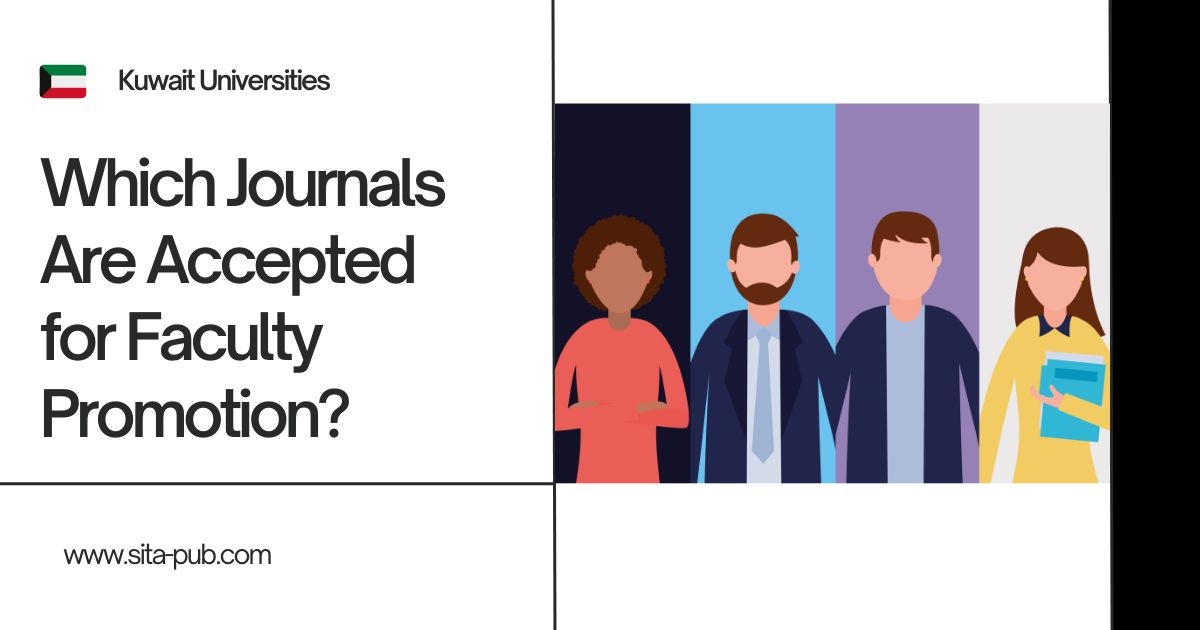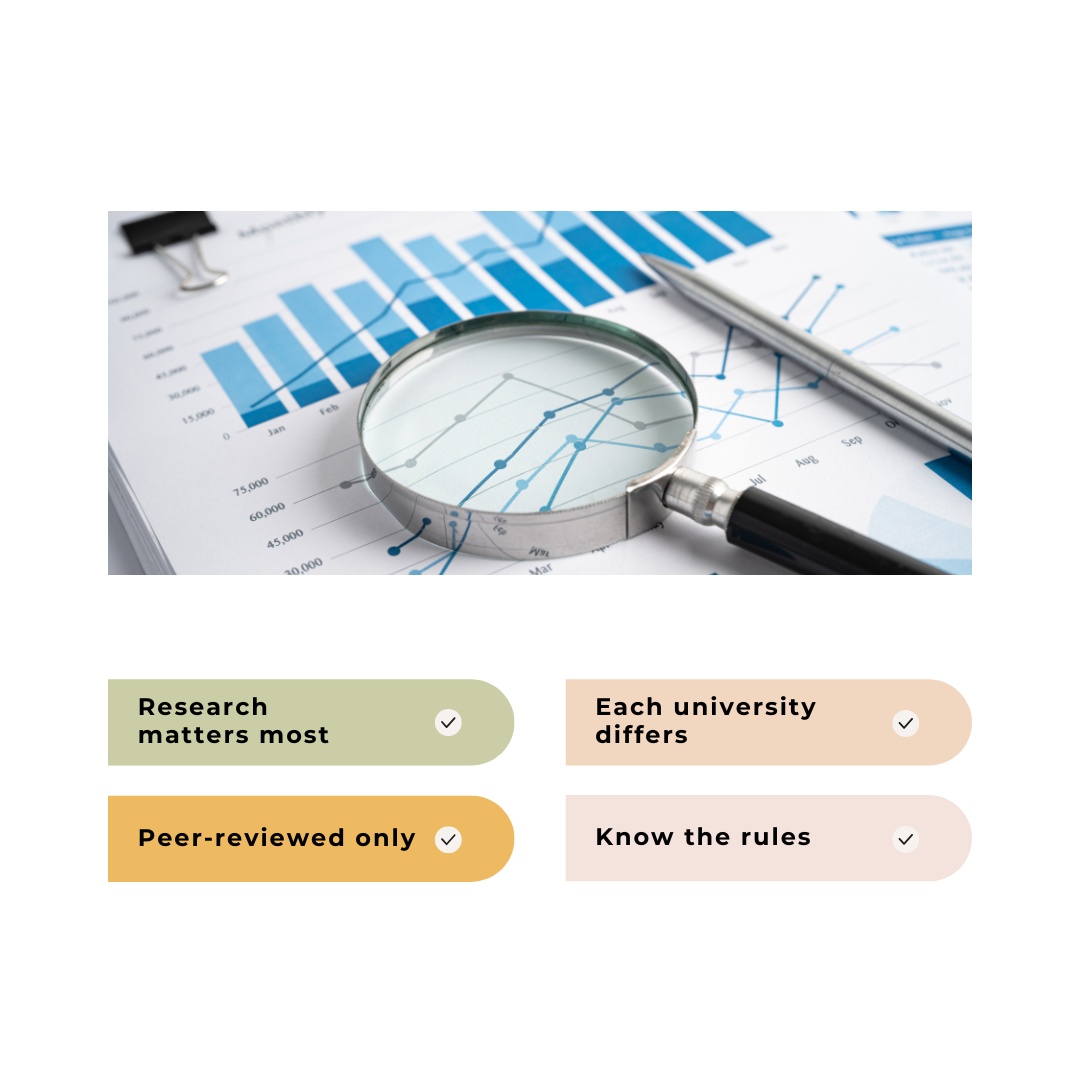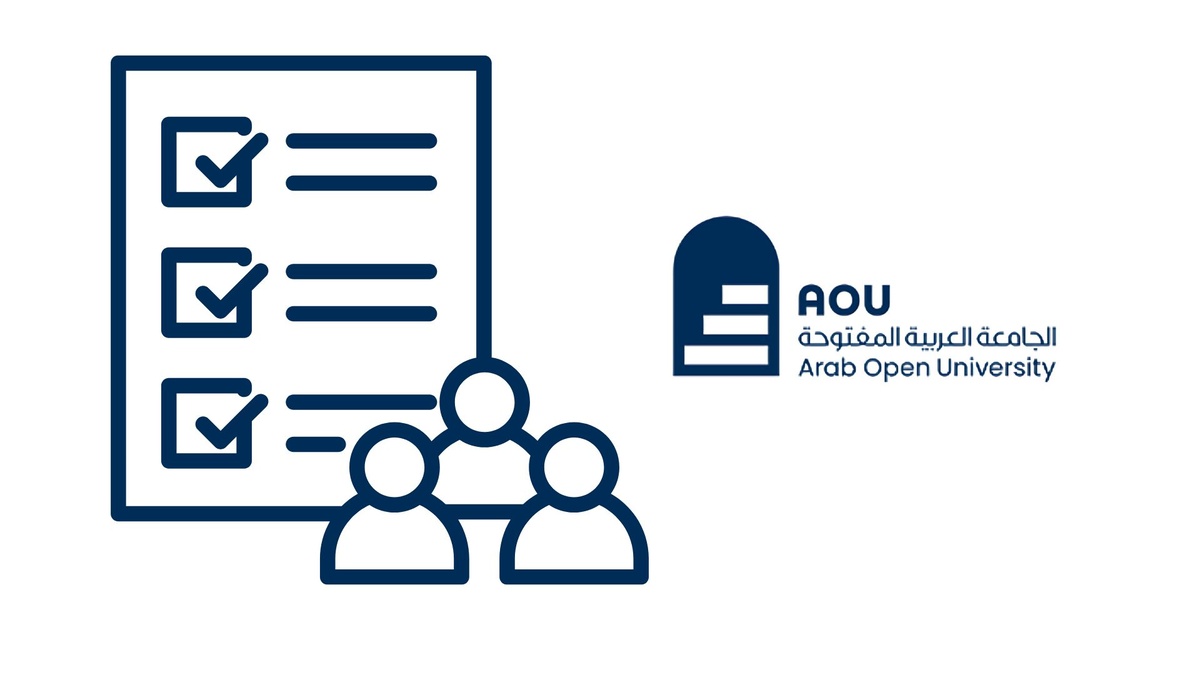Which Journals Are Accepted for Faculty Promotion in Kuwait?


Faculty promotion in Kuwait’s universities depends heavily on the quality and impact of research publications. Selecting the right journals is crucial to ensure publications count toward promotion. This article explains the criteria for acceptable journals, the accreditation process, and important guidelines specific to Kuwait University and the Arab Open University (AOU). It also clarifies the role of the Kuwait Ministry of Education regarding journal approval.
Research publications represent one of the most important criteria for academic promotion in Kuwait. Publishing full-length research papers in refereed academic journals demonstrates scholarly contribution and academic rigor. At Kuwait University, publications form a critical part of the evaluation process, while at AOU, research output accounts for 70% of promotion assessment.
Faculty members must therefore understand the standards for acceptable journals to maximize their promotion prospects and comply with academic publishing guidelines.

Unlike some countries, the Kuwait Ministry of Education does not maintain or publish a centralized list of approved academic journals for faculty promotion. Instead, the responsibility lies with university-level bodies, primarily the Academic Journals Accreditation Committee at Kuwait University.
This committee, operating under the Vice President for Academic Affairs, oversees:
Reviewing accreditation rules and regulations.
Specifying recognized international bibliographic databases.
Accrediting journals proposed by academic departments and colleges.
Periodically updating the approved list of journals.
Faculty and applicants should not rely on any ministry list but must refer to their university’s accreditation committee to confirm journal acceptance.
Kuwait University established the Academic Journals Accreditation Committee to define and maintain standards for acceptable journals. The committee ensures faculty research is published in journals meeting stringent quality, peer-review, and impact criteria.

Refereed Academic Journals:
Must employ a confidential peer-review system by independent referees (not part of the editorial board). This unbiased evaluation safeguards research quality.
Refereed International Academic Journals:
Must publish outside the author’s geographic region (e.g., outside Hawalli, Al Ahmadi, and Mubarak Al-Kabeer areas), be written in a language facilitating broad dissemination (usually English), be indexed in approved international bibliographic databases such as Scopus, and follow strict peer-review standards.
Kuwait University Journals:
Journals published by the university’s Academic Publication Council (APC) are automatically considered accredited refereed journals but gain international journal status only if they fulfill international journal criteria.
Journals from Arab Universities:
Accepted if they meet all these conditions:
Published by distinguished Arab universities accredited by the committee.
Use an objective and verified confidential refereeing process.
Specialize in a particular academic discipline.
Maintain an editorial board of recognized experts.
Publish regularly and have existed for at least three years.
Electronic Journals:
Must satisfy all refereeing and quality standards of print journals and be published by reputable international publishers, universities, or research institutions.
To be recognized, a journal must:
Publish research relevant to the applicant’s academic discipline.
Use confidential peer review by independent referees.
Be published geographically outside the author's home region.
Use a language allowing wide academic dissemination.
Be listed in internationally recognized bibliographic databases approved by Kuwait University’s accreditation committee.
The Academic Journals Accreditation Committee uses these key databases to verify journals:
Scientific disciplines: MEDLINE / PubMed, Science Citation Index Expanded (SCIE), Scopus
Humanities and social sciences: Arts & Humanities Citation Index (AHCI), Social Sciences Citation Index (SSCI), Scopus
The committee may approve additional databases over time and updates the list accordingly.
Faculty cannot assume a journal is accredited solely because it is indexed. Accreditation involves:
Departmental Review: Faculty submit journal accreditation requests via their department, where the promotion committee reviews and recommends.
Faculty Promotion Committee: Reviews departmental recommendations and forwards its decision.
Academic Journals Accreditation Committee: Conducts the final, authoritative review considering peer review processes, indexing status, editorial board, and publication history.
Once accredited, journals are added to the university’s approved list, which faculty must consult before submitting research for promotion.
Journals Published by Kuwait University’s APC: Accredited but only considered international if meeting full international journal criteria.
Arab Universities’ Journals: Accepted under strict conditions related to peer review, publication history, and editorial quality.
Electronic Journals: Accepted if meeting the same rigorous standards as printed journals and published by reputable institutions.

At AOU, journal requirements for promotion emphasize:
Peer-reviewed journals within relevant scientific specializations.
Journals with at least five years of continuous publication.
Not listed as predatory or exploitative.
Indexed in Scopus or Web of Science (WoS).
Electronic journals accepted if meeting the criteria of print journals.
Promotion to Associate Professor:
Must have 5 research papers, including 1 in a specialized international journal (Scopus or WoS indexed).
At least 4 published, and 1 accepted for publication.
Must be principal researcher (first author) in at least 4 papers.
At least 2 papers must not be based on supervised student work.
One Scopus-indexed conference paper is acceptable if it meets specific criteria (ISSN, international participation, peer-review, DOI assigned, and presentation).
Promotion to Professor:
Must have 9 research papers, including at least 2 in specialized international journals.
At least 6 published, and 3 accepted for publication.
Must be principal researcher in 6 papers (3 of which must not be based on student supervision).
One Scopus-indexed conference paper accepted under the same conditions as above.
To achieve senior academic ranks (e.g., Professor / Academic Rank), faculty must demonstrate:
A consistent record of research with multiple publications.
A specified minimum number of papers in refereed international journals.
Principal authorship or primary researcher status on most papers.
Eligible conference papers indexed by Scopus or assigned DOIs under certain conditions.
Limited use of research solely based on student theses.
Research derived directly from a Master's or PhD thesis cannot be reused for promotion.
Inclusion in a bibliographic database alone does not guarantee journal accreditation.
Publications in unaccredited journals cannot be used to justify promotion, even if accepted in past cases.
Faculty must provide full documentation proving peer review and journal accreditation status.
Violations such as submitting non-accredited journal papers or reusing previously promoted research may delay or disqualify promotion.
Examples of well-known journals accepted and respected in Kuwait academic circles include:
Journal of Arid Environments
Current Psychology journal (good for psychology research)
Journal of Consumer Marketing
These journals are often indexed in Scopus and meet the criteria for faculty promotion.

Follow strict academic publishing guidelines to ensure acceptance.
Use reliable journal submission tips like checking journal scope, formatting, and following ethical standards.
Consider fast-track journals 2025 for quicker publication if time-sensitive.
Be mindful of social responsibility in research, especially post-pandemic.
Incorporate relevant themes such as emotion in research to increase impact and relevance.
At SITA Academy, we provide end-to-end publication support to help faculty and researchers successfully publish in top international journals, including:
Scopus
Web of Science (WoS)
PubMed / MEDLINE
SCIE, AHCI, SSCI

Journal selection tailored to your paper’s field and scope
Manuscript submission on your behalf
Professional communication with the journal editorial team
Handling responses and acceptance letters
Tracking publication timeline until your article is published
Whether you're working on a research paper for academic promotion, a Scopus-indexed journal, or need fast-track journal options, SITA Academy is here to support your success.
Contact us today to start your publishing journey with expert guidance and full support.
If you have any questions, inquiries, or would like to learn more about our services, please don't hesitate to reach out to us. Our dedicated team is ready to assist you.